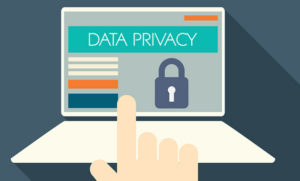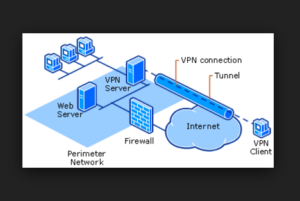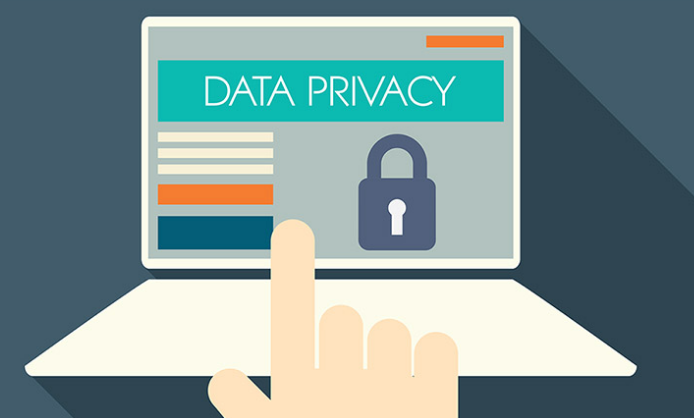Are you ready to say good-bye to your online privacy? You are probably aware that the US House of Representatives voted in April of 2017 to reverse Obama-era regulations preventing internet service providers from selling your web browsing history on the open market. This might be an excellent time to select an optimum internet privacy statement and solution. Let me explain why.

The rules, passed by the Federal Communications Commission last year, have yet to take effect. President Donald Trump rapidly signed the resolution.
What’s more, the measure bars the FCC from passing similar protections in the future. So your internet provider is already free to sell your data without your opt-in permission.
Scary to me. What do you think?
Learn more. Check out this 2-minute video.
Privacy statement … the problem
Running a business today almost certainly means having a digital presence, and being connected to the Internet. While the benefits of this transformation are many, the security issues are still a daily challenge for businesses and consumers alike.
Now internet service providers can sell the browsing habits of their customers to advertisers. The move, which many critics charge will fundamentally undermine consumer privacy in the US.
Now that they have been scrapped, internet service providers (ISPs) such as Comcast, Verizon, and AT&T are free to track all your browsing behavior and sell it to advertisers without consent.
ISPs have access to all of your browsing behavior – they act as a gateway for all of your web visits, clicks, searches, app downloads and video streams.
This represents a massive treasure trove of personal data, including health concerns, shopping habits, and porn preferences. ISPs want to use this data to deliver personalized advertising.
Event implications
An important question still doesn’t have a clear answer: what changed?
The future of online privacy is much more complicated than this particular fight, though, and where we are headed is far from determined.
It’s true that many internet companies use various methods to extensively track users across the Web, combining that information with the data users give them to create advertising profiles.
Comparing the customer data that ISPs can access directly with what companies like Google and Facebook can access is comparing apples and oranges, though, says Nick Feamster, a professor of computer science at Princeton University.

However, your ISP does have a unique view into what you do on the Internet.
Internet of things devices, which can be revealing, encrypted or not.
Traffic patterns from devices like connected thermostats, appliances, and other smart home systems can provide insights into what their users do and how they live.
How A VPN solution can help
All of these facts mean you’ll need to take your online privacy into your hands. Several technical options—especially virtual private networks, or VPNs—will return some semblance of control to you, the internet user.
Let us start with understanding the definition of a VPN.
It also encrypts the information you send across the internet so that it’s unreadable to anyone who wants to intercept that traffic – including ISPs.
While VPNs are an important privacy tool, they have limitations. The most obvious: You need to trust your VPN provider not to track you and sell your data itself.
While using a VPN, you might find that you can’t connect to all the sites and services you’re used to using. Netflix, for example, tries to block all VPNs to prevent people from accessing content not licensed in their home countries.
This creates a second layer to the problem: what if the VPNs choose to sell your real browsing behavior? Reputable VPNs won’t do this, but you need to be careful about which one you choose.
It’s wise to avoid the free ones – if you’re not paying for it, they must be making money out of you somehow. In 2015, the free VPN service Hola was revealed to be selling its users’ idle bandwidth to paying customers, including possible botnets.
Pro’s and con’s of an optimum internet privacy VPN solution
VPN’s are well established as one of the best and safest ways to link together users across distances. It is part of the overall strategy for organizations to securely use the Internet to connect remote offices and staff to the main company network. However, this doesn’t mean it is for everybody.
Here are some pros and cons to help you make a more informed decision:
Pros
High level of securitywith advanced encryption and authentication protocols,
Reduced operational costs when compared to any traditional Wide Area Network (WAN),
Low-cost global networking opportunities,
Scalability to address growth for large capacity and usage without the capital expenditure of an on-premises infrastructure,
Allows employees to connect with remote offices using locally available high-speed broadband.
Cons
There is no direct control because it is reliant on ISPs that supply the VPN. Network conditions can affect the Quality of Service (QoS)
Privacy statement … choosing the right VPN provider

Here are some key factors to keep in mind to ensure you choose the right VPN service for your business:
- Server locations:
be sure to select a server with a wide variety of locations in the strongest markets worldwide.
- Speed:
Be sure the service connection is fast and without disruption. Given the pace of your business, you wouldn’t want to use a VPN service that moves at a snail’s pace or consistently drops the connection.
- Easy, Cross-Platform Functionality:
Make sure the VPN service you choose is straightforward and easy- to-use, so you and your employees don’t have to spend time messing with different settings. Equally as important, is that the service offers applications for every device. As a business, you’ll want to be able to use the service comfortably from laptop to tablet to phone. So choose a VPN that will work seamlessly across all platforms.
- CustomerService:
You can have all the amazing tech and benefits you want, but without proper customer service and support, what good is it for? Be sure to choose a Business VPN service that offers top-notch customer service for all your company’s needs.
Internet privacy solution … my research results
My research has turned up several top VPN service providers. But my recommendation is BubbleVPN.
BubbleVPN is a judgment-free, encrypted safe VPN for online browsing on every platform.
BubbleVPN, the only fully independent, grass-roots VPN service on the Net. They don’t have big backers; They don’t have corporate sponsorship. They’re just a small group of peeps who believe in privacy – what they call “Life Inside The Bubble.”
So what’s all this about a “Bubble”? Good question. There are two components to The Bubble. The service, called BubbleVPN. And the physical device, called simply, The Bubble (Coming Soon – Kickstarter Summer 2017).
The SERVICE – BubbleVPN – is a Virtual Private Network that allows users to browse the Internet via an encrypted “bubble” that appears to outside observers as an unreadable, anonymous connection.
By browsing in The Bubble, your history and online activities stay anonymous. Your user profiles, browsing habits, and personal information stay hidden from lurkers, spies and Big Business.
The Bubble keeps your data safe, secure and useless to the open market. No data, nothing to sell.
This service is ONLINE and WORKING RIGHT NOW.
You can review the terms and conditions and signup here.
The bottom line
At the end of the day, VPN is a proven technology for secure communications between distributed users. Whether you are a single operator or a small business with many employees, you can use it as an affordable alternative to WAN.
With the right VPN service provider or one that you create, your business can have a secure network your employees can use to communicate, and access company resources no matter where they are.

Need some help in finding ways to grow your customers? Such as creative ideas to help the differentiation with potential customers? Or perhaps finding ways to work with other businesses?
So what’s the conclusion? The conclusion is there is no conclusion. There is only the next step. And that next step is completely up to you. But believe in the effectiveness of collaborative innovation. And put it to good use in adapting to changes in your business environment.
It’s up to you to keep improving your learning and experience with innovation and creativity efforts. Lessons are all around you. In this case, your competitor may be providing the ideas and or inspiration. But the key is in knowing that it is within you already.
All you get is what you bring to the fight. And that fight gets better every day you learn and apply new lessons.
When things go wrong, what’s most important is your next step.
Try. Learn. Improve. Repeat.
When things are not what you want them to be, what’s most important is your next step. Call today.
Are you devoting enough energy to improving your continuous learning for yourself and your team?
Mike Schoultz is the founder of Digital Spark Marketing, a digital marketing and customer service agency. With 40 years of business experience, he blogs on topics that relate to improving the performance of your business. Find them on G+, Twitter, and LinkedIn.
